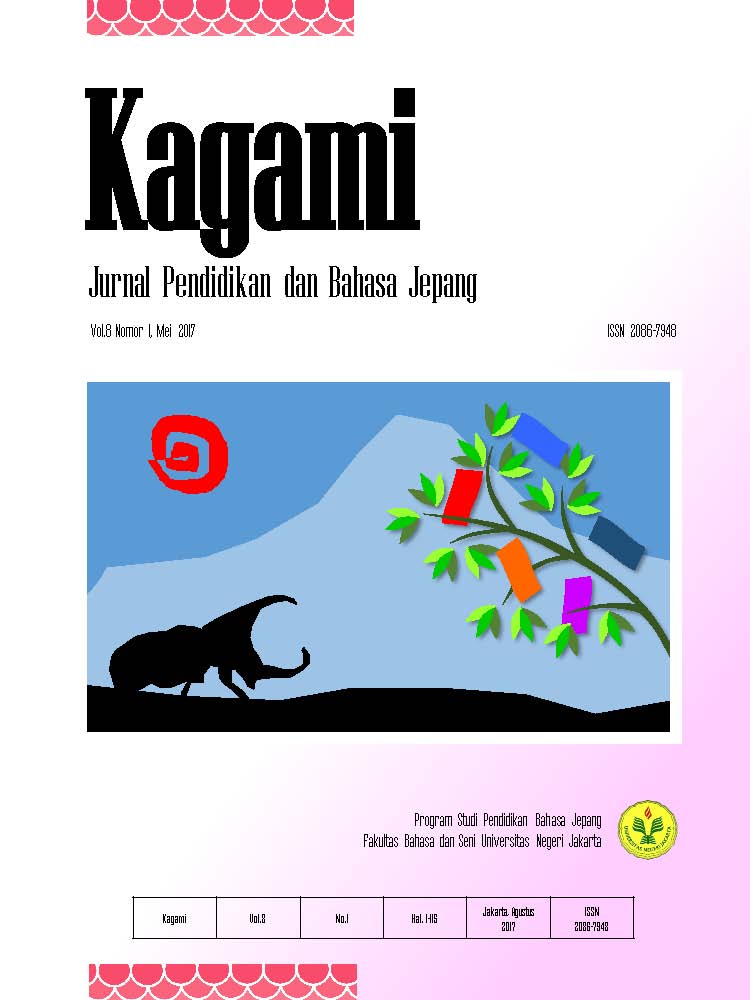Kepraktisan model pembelajaran membaca bahasa jepang (dokkai) melalui pendekatan kontekstual
Kata Kunci:
Dokkai, contextual approach, model, learning scenarioAbstrak
Considering the difference of letters and grammar between Japanese language and Indonesian language as the mother tongue, reading comprehension in Japanese especially for the first-grade students is of course, very difficult. This research aims to find an alternative solution for the first-graded students in the Japanese Language Education Program at Jakarta State University in the Dokkai course. The contextual approach is chosen because it gives students the opportunity and freedom to construct the new knowledge in their own style. Hope that through this approach the Dokkai learning will be easier, convenient, and provide long-term memory impact. The method used is research and development method through qualitative and quantitative approaches. From results of need analysis and document analysis supporting Dokkai learning which has been existed so far, this research has resulted a model which described in the design of Dokkai learning scenario which paid attention on the seven components of contextual teaching and learning in every step of learning process.
Referensi
Nana Syaodih Sukmadinata. 2009. Metode Penelitian Pendidikan. Bandung: Remaja Rosdakarya.
Rita C. Richey dan James D. Klein. 2007. Design and Development Research: Methods, Strategies, and Issues. New Jersey: Lawrence Erlbaum Associates, Inc.
Gail E. Tompkins. 2009. Language Arts, Patterns of Practice. Ohio: Pearson.
Dennis Coon, John O. Mitterer. 2012. Introduction to Psychology: Gateways to Mind and Behavior with Concept Maps and Reviews.USA: Cencage Learning.
Elaine B. Johnson. 2014. Contextual Teaching and Learning. Bandung: Kaifa
Nurhadi. 2002. Pendekatan Kontekstual (Contextual Teaching and Learning (CTL)). Malang: Universitas Negeri Malang



